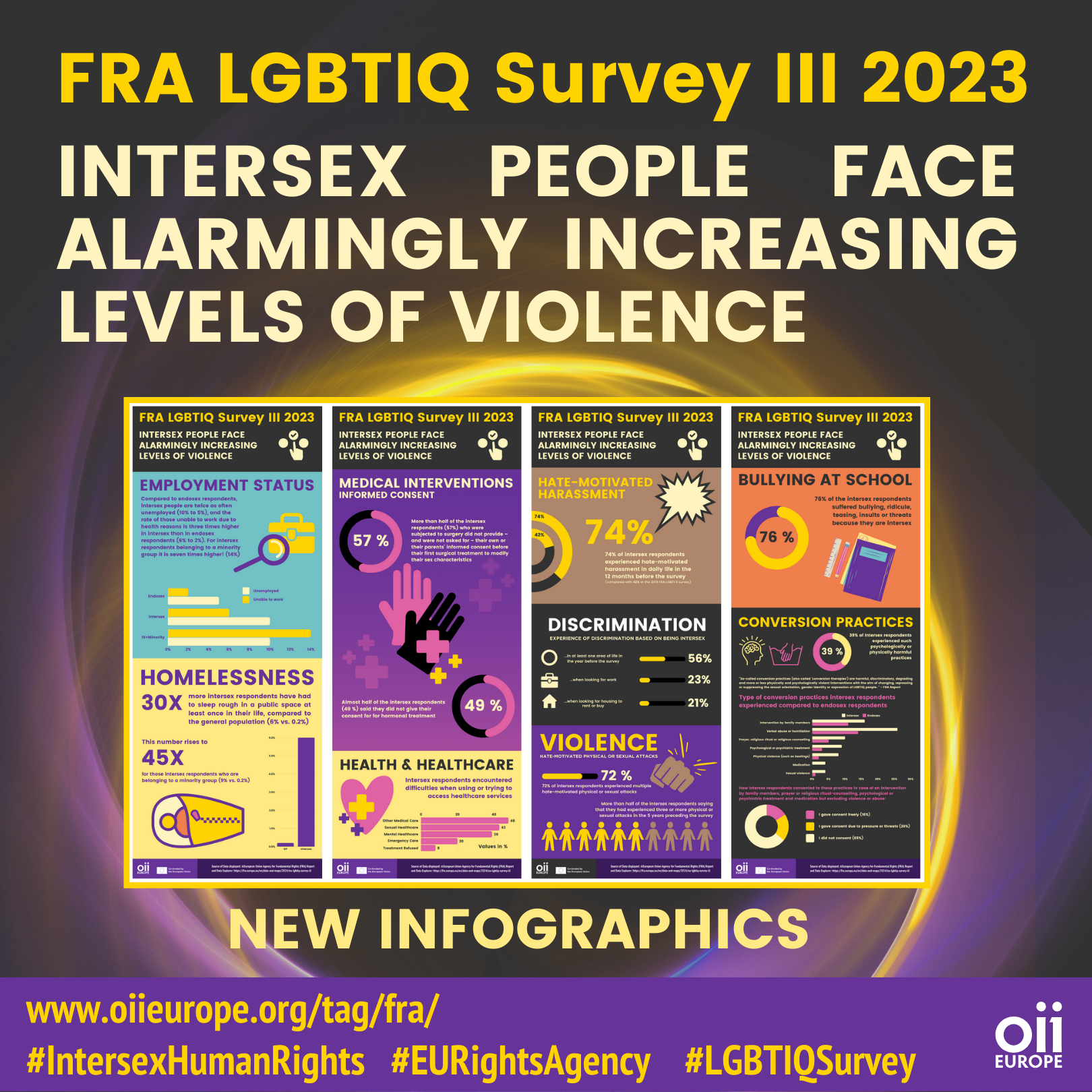On May 14th 2024, the European Union Agency for Fundamental Rights (FRA) published the third edition of its survey on LGBTIQ people, providing up-to-date information on the lives of LGBTIQ people in the 27 EU Member States and EU candidate countries of Albania, North Macedonia and Serbia. This year’s survey saw a significant increase in the number or intersex respondents. However, it also showed that intersex people face alarmingly increasing levels of violence in their everyday life!
Please take a look at our new infographics that highlight some of the findings:
Click image to open full size in new window. Below you find the content in text form).
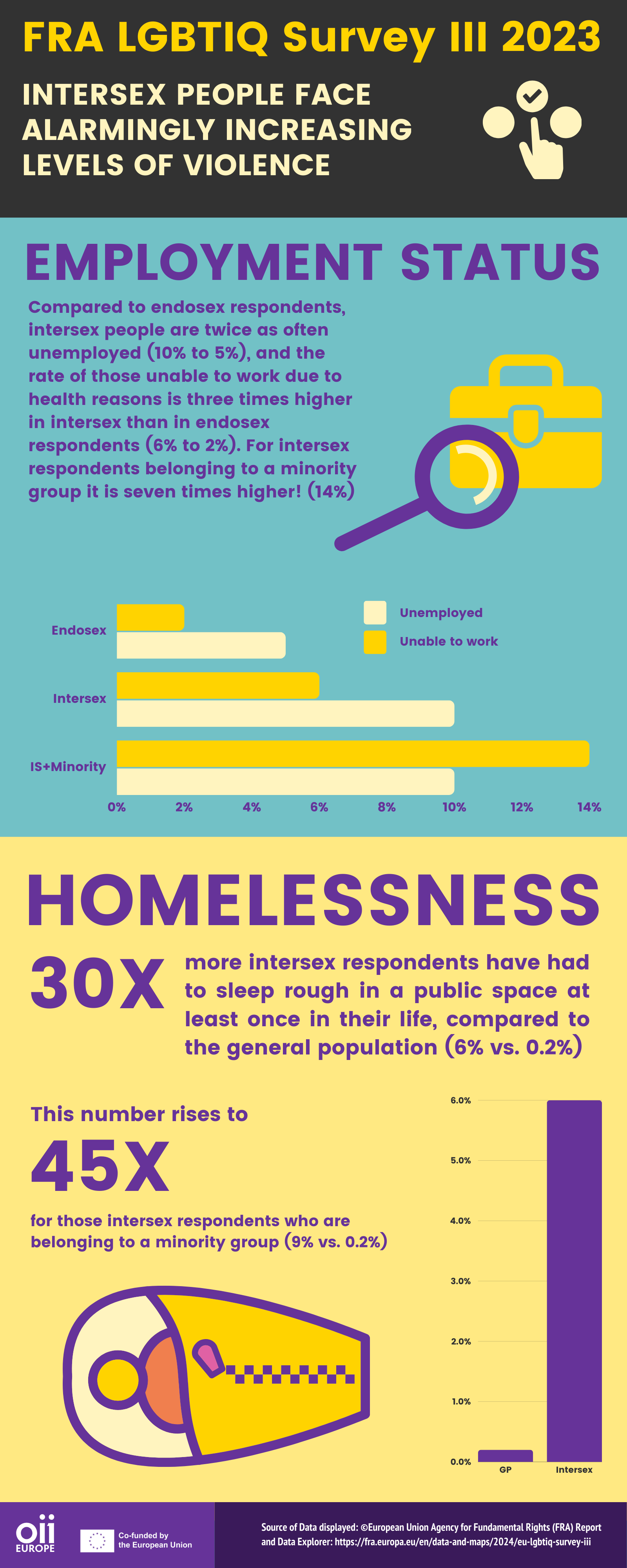
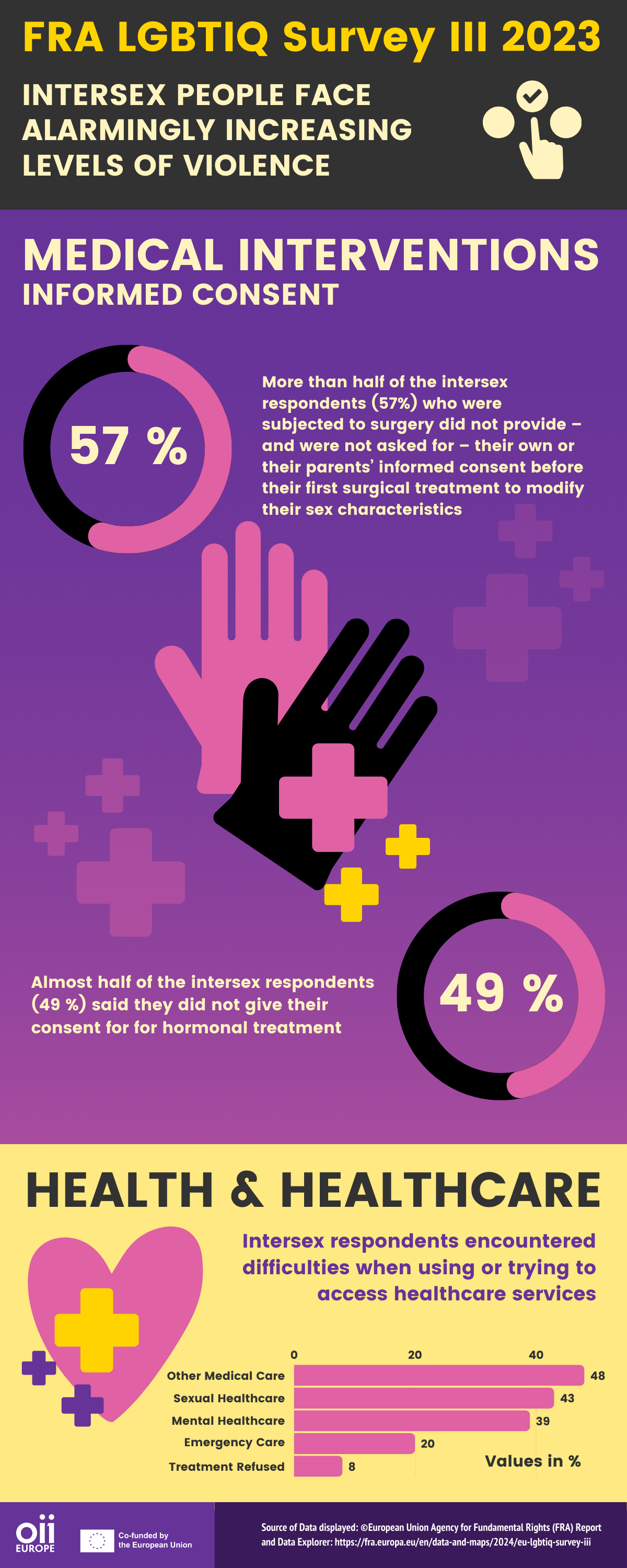
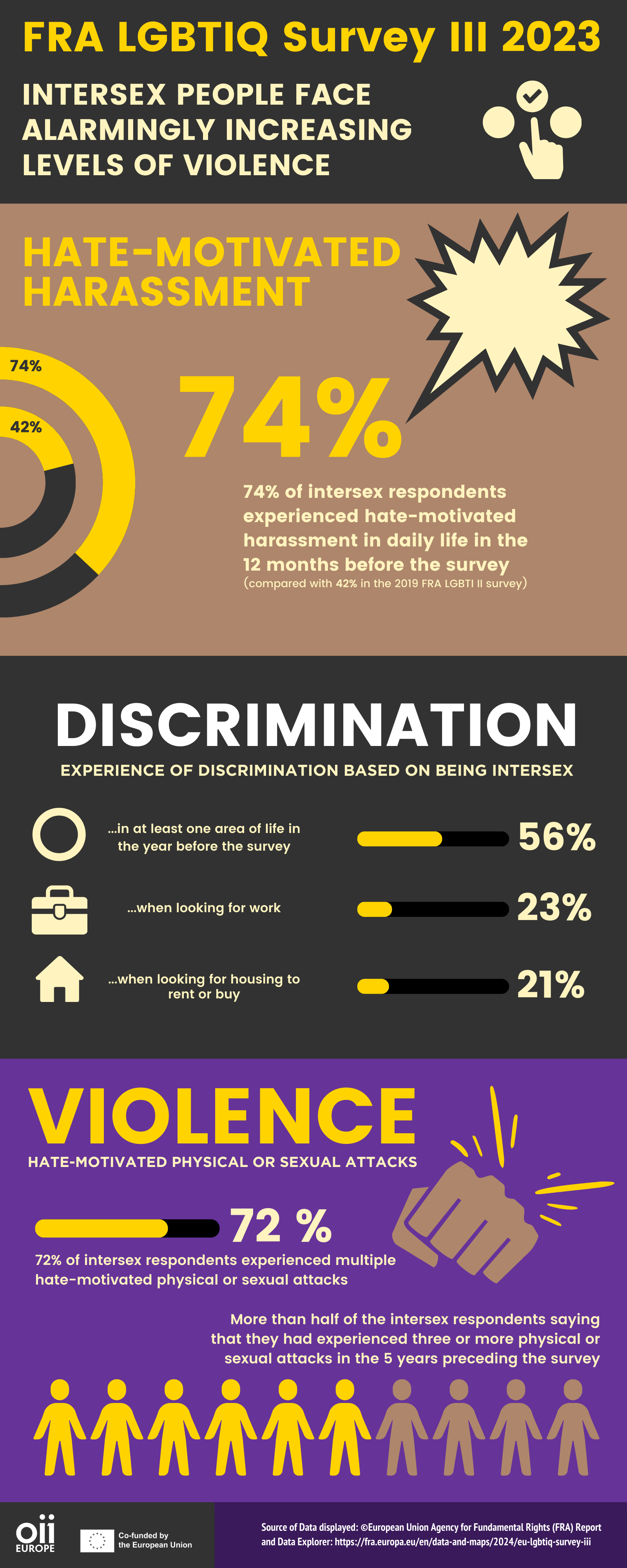
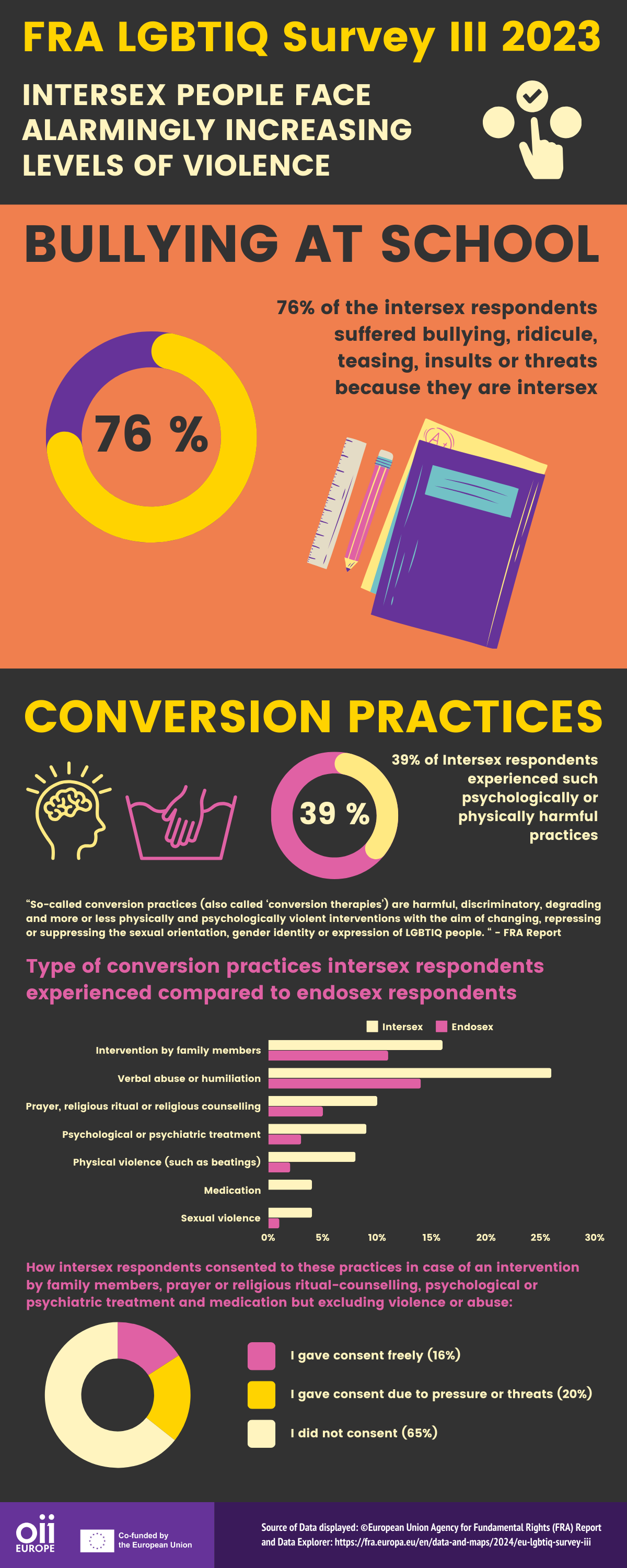
Text of the content – FRA LGBTIQ Survey III 2023
Intersex people face alarmingly increasing levels of violence
Employment Status
Compared to endosex respondents, intersex people are twice as often unemployed (10% to 5%), and the rate of those unable to work due to health reasons is three times higher in intersex than in endosex respondents (6% to 2%). For intersex respondents belonging to a minority group it is seven times higher! (14%).
Homelessness
30 times more intersex respondents have had to sleep rough in a public space at least once in their life, compared to the general population (6% vs. 0.2%)
This number rises to 45 times for those intersex respondents who are belonging to a minority group (9% vs. 0.2%)
Medical Interventions
Informed consent
More than half of the intersex respondents (57%) who were subjected to surgery did not provide – and were not asked for – their own or their parents’ informed consent before their first surgical treatment to modify their sex characteristics
Almost half of the intersex respondents (49 %) said they did not give their consent for for hormonal treatment
Health & Healthcare
lntersex respondents encountered difficulties when using or trying to access healthcare services
- 48% in Other Medical Care
- 43% in Sexual Healthcare
- 39% in Mental Healthcare
- 20% in Emergency Care
- For 8% treatment was refused
Hate-Motivated Harassment
74% of intersex respondents experienced hate-motivated harassment in daily life in the 12 months before the survey (compared with 42% in the 2019 FRA LGBTI II survey)
Discrimination
Experience of discrimination based on being intersex
- 56% …in at least one area of life in the year before the survey
- 23% …when looking for work
- 21% …when looking for housing to rent or buy
Violence
Hate-motivated physical or sexual attacks
72% of intersex respondents experienced multiple hate-motivated physical or sexual attacks
More than half of the intersex respondents saying that they had experienced three or more physical or sexual attacks in the 5 years preceding the survey
Bullying at School
76% of the intersex respondents suffered bullying, ridicule, teasing, insults or threats because they are intersex
Conversion Practices
39% of Intersex respondents experienced such psychologically or physically harmful practices
“So-called conversion practices (also called ‘conversion therapies’) are harmful, discriminatory, degrading and more or less physically and psychologically violent interventions with the aim of changing, repressing or suppressing the sexual orientation, gender identity or expression of LGBTIQ people. “ – FRA Report 2024
| Type of conversion practices intersex respondents experienced compared to endosex respondents | Intersex | Endosex |
|---|---|---|
| Intervention by family members | 16% | 11% |
| Verbal abuse or humiliation | 26% | 14% |
| Prayer, religious ritual or religious counselling | 10% | 5% |
| Psychological or psychiatric treatment | 9% | 3% |
| Physical violence (such as beatings) | 8% | 2% |
| Medication | 4% | 0% |
| Sexual violence | 4% | 1% |
How intersex respondents consented to these practices in case of an intervention by family members, prayer or religious ritual-counselling, psychological or psychiatric treatment and medication but excluding violence or abuse:
| I gave consent freely | 16% |
| I gave consent due to pressure or threats | 20% |
| did not consent | 65% |
Downloads
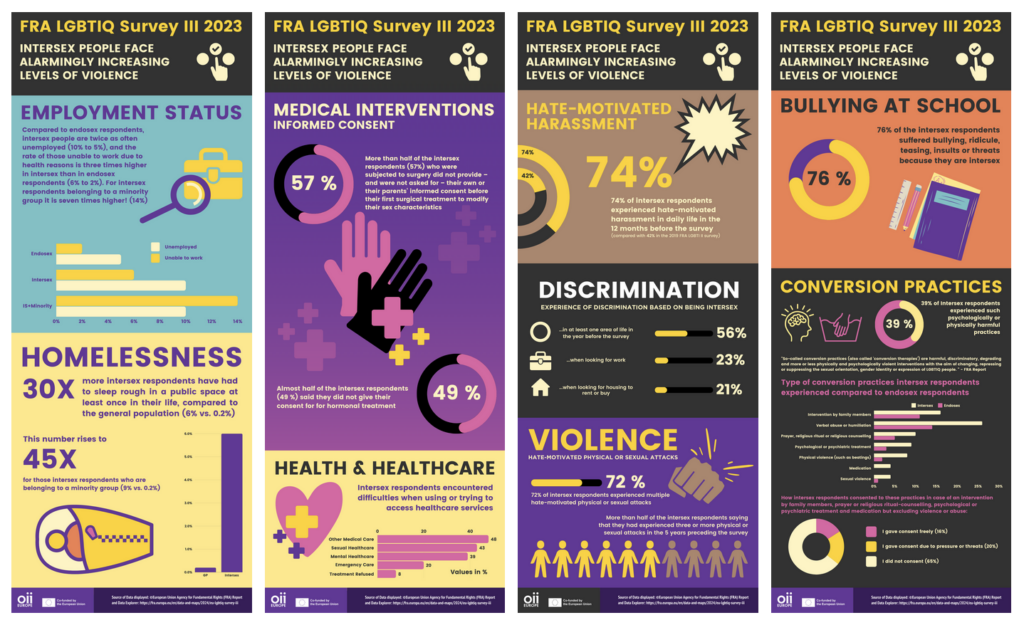
Infographics as image files (PNG) high resolution (zip)
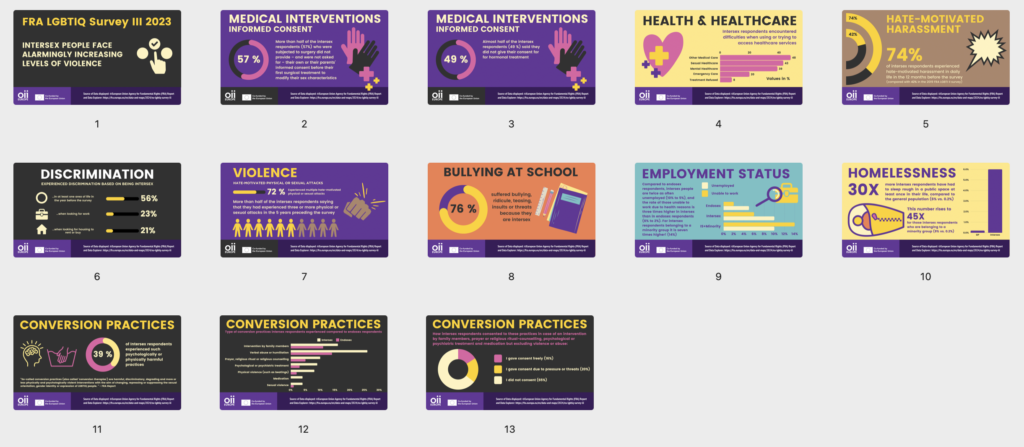
Infographics (PNG) for screens and presentations (screen, PPT) (zip)
Source of Data
Source of Data displayed: ©European Union Agency for Fundamental Rights (FRA) Report and Data Explorer: https://fra.europa.eu/en/data-and-maps/2024/eu-lgbtiq-survey-iii

